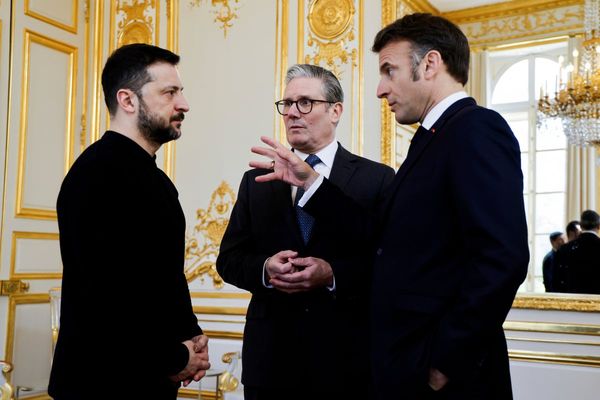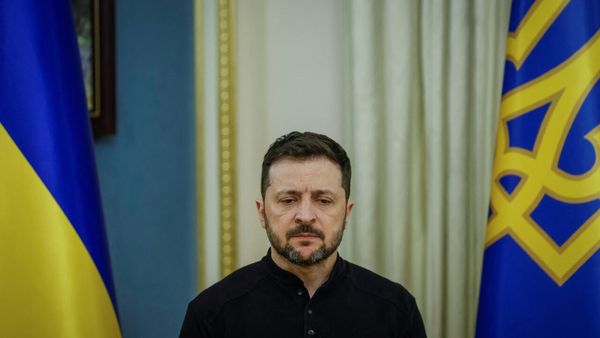VAR has its say yet again
It’s been a depressingly high profile weekend for VAR. After the string of questionable decisions for West Ham and Newcastle and the inexcusable delay at Nottingham Forest, the officials at Stockley Park were once again under the microscope, but a high profile chance fixture between two of England’s biggest clubs in Manchester United and Arsenal offered them a chance to redeem themselves. Sadly they did not take it.
Before getting into any analysis of the standard of officiating it’s worth just pointing out that there is not a PGMOL conspiracy against Arsenal, just as there isn’t against any other club. Yes, Paul Tierney and Lee Mason both being from Greater Manchester is, on paper, an odd coincidence, but that speaks more to a lack of diversity in background among referees that is a deeper issue for a whole other article, rather than any sort of plot against the Gunners. Yes, the scars of previous awful calls at Old Trafford still loom large in the psyche of many fans, but the officials are impartial to the best of their abilities.
Having said that though, while their biases can’t legitimately be called into question, their quality most certainly can. The decision to rule out Gabriel Martinelli ’s goal for a foul by Martin Odegaard raises so many an issue about the way VAR is put into place that four years into its existence we are still no closer to overcoming.
READ MORE: Every word Mikel Arteta said on VAR decision, naivety and Arsenal midfield injuries
What is exactly is a clear and obvious error? As he watched Martinelli’s first half striker get disallowed, Mikel Arteta was left asking the same thing.
“I haven’t seen the action but what they said is that it was a soft foul so it’s just consistency,” the Spaniard said in his post-match press conference. “The soft foul on Bukayo Saka with (Tyrone) Mings is not a penalty last week, the soft foul against Aaron Ramsdale when we concede a goal against Villa, it’s a goal. So just consistency. There’s nothing we can do now, it’s too late, but it’s just consistency.”
It’s easy to see where the Arsenal boss is coming from The way Tierney and Mason chose to implement VAR on Sunday was far from within the spirit with which it was introduced. The technology was brought into to overcome heinous errors. Tierney’s decision to play on after Odegaard won the ball back off Christian Eriksen was far from that.
Who’s to say what would have happened if the Gunners had taken that early lead. Perhaps United would have come back to win anyway. But the notion that the goalposts for intervention by VAR is shifted every week is maddening for all involved. The definition of insanity is repeating the same thing multiple times and expecting different results, so perhaps it’s time for something to change.
Errors go punished in the harshest way
For all the talk of refereeing decisions though, Arsenal’s were certainly complicit in their defeat at Old Trafford. The three points and a real statement result to prove their doubters wrong were there for the taking but errors at key moments cost them.
If there was one player who embodied this unfortunate chain of events, it was Albert Sambi Lokonga. The Belgian, who had been thrust into the spotlight yet again after injuries to Thomas Partey and Mohamed Elneny, was generally pretty good, but momentary lapses in concentration were punished in the harshest possible way.
Take the first goal where he loses track of where he is on the pitch and pushes far too high for a player whose role is primarily a deeper one. Then in the second the 22-year-old concedes possession poorly to allow United to counter quickly via an admittedly superb pass from Bruno Fernandes.
This is by no means meant to be a section picking on Lokonga. The lack of ruthlessness among Arsenal’s frontline, from Martin Odegaard in particular, was just as much to blame. Instead though what it does show is how severely minor lapses were punished on the day. Speaking after the game Mikel Arteta was bluntly brutal about why his team hadn’t come away with anything despite a good performance and referenced Lokonga's giveaway in the second goal directly.
“We lacked discipline,” he said. “We concede the first goal where after the action in the contact with Bruno we’re still three-vs-three but we don’t follow our principles and we concede the goal when it’s two against one. After that it was all us, chance after chance, imposing ourselves in the way we wanted.
“I said at half time to the boys ‘the game is there for the taking, if we play with more courage we’re going to win the game.’ After the 1-1 it should be two or three one and then in our best moment we gave the ball away in a dangerous area and on top of that we stepped in when we can never do that in a dangerous area against that team and we suffered the goal.
“It’s a big lesson. If you want to win here you have to do everything so right and especially if you don’t do it there in the opponents goal with the amount of chances we created.”
It’s a tough pill to swallow for an Arsenal side who played close to the level they have been managing all season at a ground where they have struggled despite having crucial players missing from the squad. However, if they are to progress to the level that their early season form deserves, then they will need to find a way of falling the right side of the fine margins that decide big matches.
Arteta rolls the dice too early
If there’s one criticism of Mikel Arteta in his tenure at Arsenal that has raged on pretty much since the beginning, it’s that the Spaniard can be a little slow to use his subs. Of course you don’t want to be in a position like under Unai Emery where you’re making half time substitutions every game because plan A has gone so terribly, but using the bench and managing the game as an important string to any manager’s bow.
With that in mind it may seem perverse then to criticise for going too early with his changes, but there’s certainly an argument to be made on the basis of Sunday’s game.
Having seen his team fall into a losing position despite dominating large sections of the game and creating consistent chances, Arteta decided to go for the jugular on 74 minutes. Emile Smith Rowe, Eddie Nketiah and the impressive Fabio Vieira were all thrown on and the formation switched to an all out attacking back three that used Bukayo Saka and Gabriel Martinelli as wing backs. However, by the 75th minute, the Gunners found themselves 3-1 down.
In fairness to Arteta, that attacking back three is something his side have been working since preseason, and when his team found themselves chasing the game against Fulham a week ago, it was a set up that he turned to with great success.
However, different game states require different strategies. By bringing off Oleksandr Zinchenko and Albert Sambi Lokonga, Arsenal sacrificed what little control they had of the central areas in order to desperately chase a game that perhaps could have been won by the more patient approach that had been fashioning so many opportunities earlier on. United took advantage of this and got in through the centre for Marcus Rashford 's second goal and on several other occasions that could have made the score line far more brutal.
Ultimately the judgement of a bold tactical decision like that is almost entirely based on the result. Had Arsenal come back to win 3-2, this section would most likely have been praising Arteta for his genius in switching the formation up. But for a man so steadfastly devoted to his principles perhaps the Spaniard could have waited just a little while longer before throwing the kitchen sink in a match where a point would probably have represented a good result for the Gunners.
Bouncing back essential
There will be a noise around Arsenal right now suggesting that there early start to the season was just a case of the Emperor’s New Clothes. There shouldn’t be, as they were the better side for much of the game at Old Trafford, but such is the results driven discourse around a club the size of the Gunners, it is inevitable.
Making sure they rise above that to get their steam train of a season back on track is now arguably bigger than any test they’ve faced yet this campaign. Speaking after the game Mikel Arteta was defiant that his young side wouldn’t struggle with this.
“It won’t happen,” he told football.london when asked if the bitter taste of defeat would linger. “That won’t happen because the performance is there and we know what we lacked today - the details to lose the game. You are here and you have a very different performance with the same result and then it’s a hard one to take because you are questioning your level. I don’t think there’s any question about the level there.”
Last season Arsenal’s tendency to lose in batches was arguably what cost them a place in the Champions League. The truncated nature of this season means that if they are unable to bounce back quickly then that psychological deficiency will be punished even more severely.
After conceding goals within games the Gunners have shown already that they can turn tides at speed. Now with a gap between Thursday’s game with FC Zurich, ensuring they can go again to resume their early season form is going to be essential.
READ NEXT:
Arsenal player ratings vs Man United as Martinelli good but Gabriel and Lokonga make errors
What Shakhtar Donetsk's Mykhaylo Mudryk did amid Arsenal transfer links
Mikel Arteta highlights Gabriel Martinelli's elite mentality with Arsenal star now reaping rewards
Paul Merson gives Mikel Arteta midfield advice amid Martin Odegaard injury doubt
Arsenal reminded of Financial Fair Play danger as UEFA fine eight clubs amid watchlist concern







